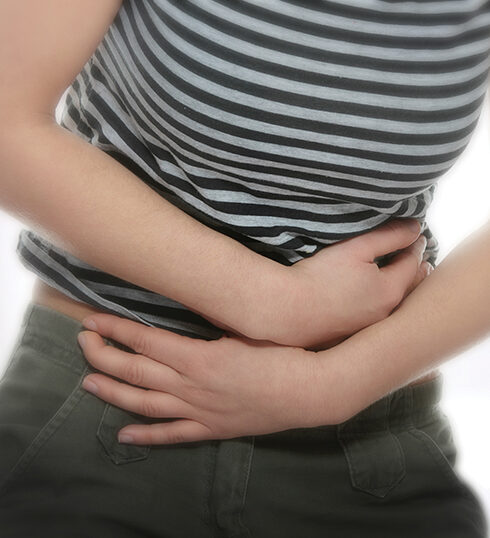The Mind-Body Connection in Hair Loss: How Stress Impacts Hair Health

When stress takes a toll on your mental well-being, it can show up where you least expect it — your hair. Stress-induced hair loss is more common than you may realize, and many people don’t recognize the subtle signs of thinning and shedding until the damage is done. But hair and stress are intrinsically connected. If you’re noticing changes in your hair, ScriptsMD offers convenient access to expert guidance and treatment options to help you take control of your hair health.
Let’s dive into how stress impacts hair health, how to recognize the signs, and what you can do to regain control.
The Science Behind Stress and Hair Loss
Stress doesn’t just make you feel frazzled — it also triggers physiological changes that can affect your entire body, including your hair. Here are the main ways stress disrupts hair health:
- Telogen effluvium: When you’re under significant stress, your body pushes many hair follicles into the telogen (resting) phase, causing noticeable shedding. This condition, known as telogen effluvium, often manifests a few months after the stressful event.
- Alopecia areata: In some cases, chronic stress can exacerbate an autoimmune response where the immune system mistakenly attacks hair follicles. This condition, known as alopecia areata, often leads to patchy hair loss on the scalp or other areas of the body.
- Trichotillomania: Stress can also manifest as compulsive behaviors, such as trichotillomania — the irresistible urge to pull out hair. This condition is both a physical and psychological response to overwhelming stress.1
The culprit behind these conditions is often cortisol, the “stress hormone.” Elevated cortisol levels interfere with the natural hair growth cycle.1 For those experiencing significant hair loss, it may also be worth discussing treatment options like minoxidil with your doctor. Minoxidil can help stimulate hair regrowth 2 and may be an effective addition to your overall hair health strategy.
Recognizing the Signs of Stress-Induced Hair Loss
Stress-induced hair loss isn’t always obvious at first. Here’s what to look for:
- Increased shedding: If you’re noticing more hair in your brush, shower drain, or on your pillow, stress could be to blame.
- Thinning hair: Stress can lead to diffuse thinning, particularly around the temples or crown.
- Bald patches: Sudden, round bald spots may signal alopecia areata.3
One of the challenges in identifying stress-induced hair loss is its delayed onset. Hair shedding often occurs several months after a stressful period, making it difficult to pinpoint the trigger.1 Keep a journal of significant life events to help connect the dots.
Mind-Body Techniques to Reduce Stress and Promote Hair Health
The good news is that addressing stress can help stop and even reverse stress-related hair loss. Adopting a holistic approach that targets both mind and body is key.
Mindfulness Practices
Practicing mindfulness is one of the most effective ways to reduce stress. Activities like meditation, yoga, and deep breathing exercises lower cortisol levels and promote relaxation.
- Meditation: Spend 10 to 15 minutes daily focusing on your breath or a calming mantra.
- Deep breathing: Try diaphragmatic breathing to activate the body’s relaxation response. Inhale deeply for a count of four, hold for four, and exhale for six.
- Yoga: Combine gentle movements with mindful breathing to reduce physical and mental tension.
Regular Exercise
Physical activity is a natural stress reliever that benefits your entire body, including your hair.
- Aim for at least 30 minutes of moderate exercise, like walking, jogging, or cycling, five times a week.
- Incorporate strength training or resistance exercises for a well-rounded workout routine.
Nutrition for Hair Health
Your diet plays a crucial role in hair health. Focus on nutrient-dense foods that support hair growth and overall well-being:
- Proteins: Include lean meats, eggs, and legumes in your meals.
- Vitamins and minerals: Biotin, zinc, and iron are particularly important for hair health. Eat plenty of leafy greens, nuts, seeds, and whole grains.
- Omega-3 fatty acids: Include fatty fish such as salmon, mackerel, and sardines.4
Prioritize Sleep
Lack of sleep exacerbates stress, creating a vicious cycle that affects hair health. Aim for seven to nine hours of quality sleep each night.
- Establish a routine: Go to bed and wake up at the same time daily.
- Create a sleep-friendly environment: Keep your bedroom cool, dark, and quiet.
- Limit screen time: Avoid screens at least an hour before bedtime to prevent blue light from disrupting your circadian rhythm.
Scalp Care
A healthy scalp is essential for strong, resilient hair. Incorporate these practices into your hair routine:
- Scalp massage: Spend a few minutes each day gently massaging your scalp with your fingertips to improve blood flow.
- Gentle hair care: Avoid harsh shampoos or heat styling tools that can damage hair.
- Hydration: Use a moisturizing scalp treatment if dryness is an issue.
When to Seek Professional Help

Sometimes, lifestyle changes aren’t enough to combat stress-induced hair loss. Here’s when to consult a healthcare professional:
- Persistent hair loss: If your hair continues to thin or shed despite stress management efforts.
- Rapid hair loss: Sudden or severe bald patches should be evaluated immediately.
- Scalp symptoms: Redness, pain, or itching may indicate an underlying medical condition.3
A dermatologist can perform a thorough evaluation to determine the cause of your hair loss. They may recommend treatments such as finasteride, minoxidil, or therapies to address hormonal imbalances. In some cases, addressing nutritional deficiencies or underlying conditions like thyroid disorders can make a significant difference.
Conclusion
While stressful periods may temporarily disturb your hair’s growth cycle, taking steps to reduce stress and improve your self-care can help restore balance. Integrate relaxing activities like yoga, meditation, or journaling into your routine. Improving sleep quality, eating a nutrient-rich diet, and staying active also supports overall health.
If your hair loss become excessive, consult a dermatologist to identify any underlying issues. Remember, hair regrowth takes time. Be patient and focus on establishing healthy hair care and stress management habits.
Bibliography
- Thom, E. (2016, August). Stress and the hair growth cycle: Cortisol-induced hair growth disruption. Journal of Drugs in Dermatology. https://jddonline.com/articles/stress-and-the-hair-growth-cycle-cortisol-induced-hair-growth-disruption-S1545961616P1001X
- Regaine. (n.d.). How minoxidil works. https://www.regaine.co.uk/minoxidil/how-minoxidil-works
- Penn Medicine. (2023, June 7). Hair Loss (Alopecia). https://www.pennmedicine.org/for-patients-and-visitors/patient-information/conditions-treated-a-to-z/hair-loss-alopecia-areata
- Fisher, J. (2024, April 22). Vitamins, minerals, and hair loss: Is there a connection?. Harvard Health. https://www.health.harvard.edu/diseases-and-conditions/vitamins-minerals-and-hair-loss-is-there-a-connection












